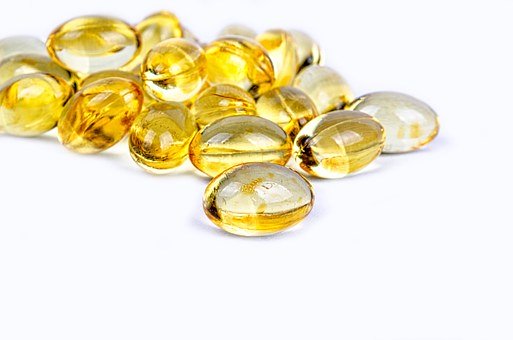
In recent years, we accumulated findings on the importance of vitamin D for our health.
“For hormones such as estrogen, progesterone and testosterone are the benefits of their optimal levels long known. Vitamin D is the oldest member of this potent group of steroid hormones because of its presence we can prove already in plankton “(Dr. Med. Raimund von Helden).
Vitamin D is actually not a vitamin, but a prohormone, a sort of precursor that changes to the hormone in active form. At the time when it was discovered, it was based on the misbelief that the body accepted Vitamin D in the diet, so it was marked as vitamin. Vitamin D (otherwise also antirachitic vitamin) is a summary name for steroid hormonal precursors, a summary also known as Calciferols. They are the starting substance for the synthesis of calcitriol, a hormone that significantly affects the metabolism of calcium and phosphorus. Vitamin D affects 200 different chemical reactions in the body and chemically distinguishes vitamin D2 (Ergocalciferol) and vitamin D3 (Cholekalciferol).
Even a few decades ago doctors were convinced that the only benefit of vitamin D is to maintain bones and teeth healthy. However, the new scientific knowledge demonstrates its diverse role in the healthy body and also its ability to reduce the risk of diseases that have not yet been associated with vitamin D or its deficiency. A good level of Vitaminu D protects against type 1 diabetes. and 2., high blood pressure, muscle weakness and muscle spasps (calves and upper eyelid), inflammation, skin rashes, cancer and metastases, Alzheimer’s disease, lack of energy and a feeling of exhaustion.

The sun is the main source of vitamin D, but north of 40. The degree of geographical wider (Rome) decreases the intensity of its radiation by each degree. UVB radiation, which creates vitamin D on the skin, does not pass through the clouds and sometimes does not penetrate even through the ozone layer. If the sun is low, its rays turn into the earth at an angle of less than 47 °, UVB radiation is reflected from the ozone layer and almost at all does not penetrate us. We can expose the whole body to the sun, Fray (UVA radiation), but we do not obtain any vitamin D. Therefore, morning or evening sunbathing for the gain of vitamin D is completely useless. (Test to obtain vitamin D . Attach the pencil perpendicular to the Earth’s surface. If the shadow of the pencil is much shorter than its height, UVB radiation penetrates us). Our own stock of vitamin D, we should replenish a daily 10-minute stay on the sun without sunscreen, as it is the best UV spectrum. Approximately 30-minute tear is produced by the body 10 000 to 12 000 IU of vitamin D. In the spring and summer period, solar radiation contains, in addition to the ultraviolet rays of type A (UVA), type B (UVB) and only this is able to react with the absorbed 7-dehydrocholesteroid ( Provitamine) and turn into Cholekalciferol. During this period it is possible to obtain the necessary dose of vitamin D and the daily short-term exposure of sunlight. (5 – 10 min.) Unfortunately, in our latitudes of sunlight in the period between September and March UVB radiation almost do not contain and therefore vitamin D is not formed. UVB radiation acts in the skin as a catalyst for the conversion of 7-Dehydrocholesterol from the liver to vitamin D3. This active form directly affects the metabolism of cellular processes.

According to Prof. Dr., honey Hartmut Glossmann from the University of Innsbruck, criticises the fear of the Sun as follows: ‘ In the last 70 years, the number of fatalities of skin cancers has really increased, but especially in people who do not go out and not for workers on construction sites. We can say that regular sunbathing protects against melanoma. Vitamin D through its receptors is able to regulate the growth and apoptosis of malignant cells and block angiogenesis in the tumor and thus act anticarcinogenic. The active form of vitamin D – Calcitriol regulates the numerous processes responsible for developing malignancies. Previously conducted pre-clinical and initial clinical evaluations have clearly confirmed that vitamin D deficiency increases the risk of cancer and its supplementation may significantly decrease the incidence of this disease. A four year study on vitamin D and calcium, participated in more than 1000 healthy women. One group was receiving vitamin D and the second placebo. After four years, in the group receiving vitamin D, it showed 77% less risk of oncological disease than in the placebo group. In doing so, there were different types of cancers, such as breast cancer, bowel cancer and pancreatic cancer.
The amount of vitamin D generated reduces protective creams, frequent baths in hot water, dry skin of older people, large amounts of melanin in the skin, body and air pollution. People who often rejuvenate with warm water and soap, relieve their skin with sebum and fat, which also results in a reduction in the contents of 7-Dehydrocholesterol in the skin. The risk group also includes people who prefer to engage in confined spaces (work and entertainment at the computer). A significant vitamin D deficiency has been observed in seniors enclosed in social devices who are at least in contact with the sun.

The study also showed that a sufficiently high dosage of vitamin D, mainly in postmenopausal women, can reduce the risk of osteoporosis and bone fractures by 30%. Vitamin D also helps pregnant women, prevents complications during pregnancy, such as vomiting, headache, nausea or fatigue, and also protects the fetus from damage. And today it already knows that the more the woman moves to the sunshine, the more prolific :). Vitamin D deficiency disrupts hormone synthesis and adversely affects the quality of the female hormone.
From food we can get a small amount of vitamin D, usually 5 to 10%. We can find it in fish oil, liver, egg yolks, milk, although cows ‘ milk alone does not contain much vitamin D and its quantity depends on the season and the quality of the feed. Cattle and hens are mostly kept in confined spaces, they do not have access to sunlight and themselves suffer from vitamin D deficiency. The plants are almost not present. Therefore, certain foods, such as cereals, vegetable fats and vitamin D dairy products, are artificially enriched.
Vitamin D is also important for the proper functioning of the immune system. Long-term vitamin D deficiency is proven to be associated with higher susceptibility to the so-called Acute respiratory infections and influenza. Constant fatigue, irritability, nervousness, deteriorating sleep, headache, joint pain and dizziness may be signs of vitamin D deficiency. Low levels of vitamin D may also be related to mental imbalances and depression. So let’s not forget about vitamin D and enjoy the time spent in the sun. 🙂
